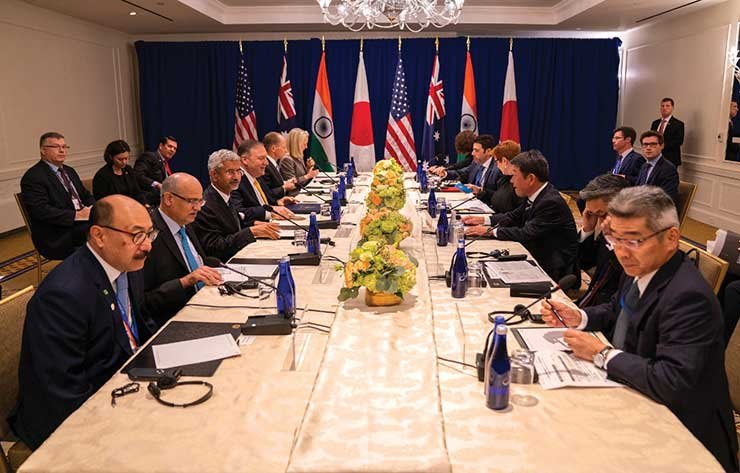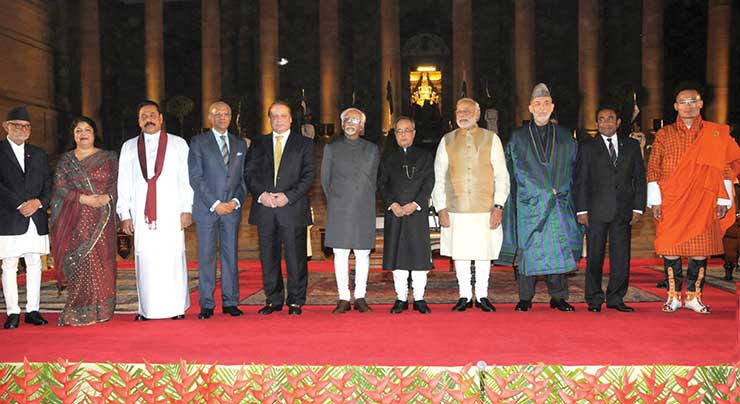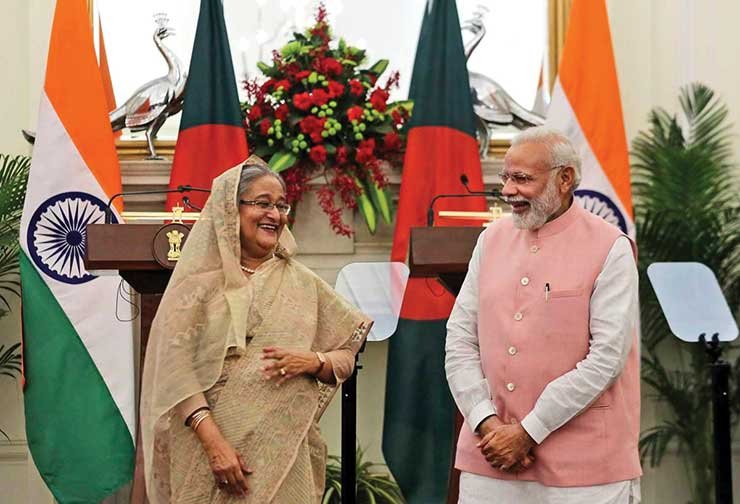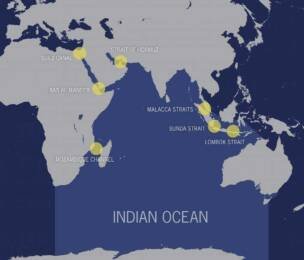
During the two World Wars as well as in the Cold War era, formation of blocks and axis of nations got enhanced. The saga has been continuing in some form or other. Formation of South Asian Association for Regional Co-operation (SAARC) was such an effort to bring the nations of the sub-continent on common platform. Established in 1985, SAARC has completed more than 35 years. This is true that the organisation was formed keeping in view non-military requirements of the member nations. But the incidents like former USSR intervening Afghan affairs enhanced the process of formation of SAARC considering larger security issue of the region.
Similarly, in the formation of SAARC, former Bangladeshi President Ziaur Rahman who is considered one of the prominent strategists and diplomats of that era took a pivotal role although President Rahman was assassinated before the official formation of SAARC. The reason Pakistan became a part of this organisation is also very important. Pakistani leadership looked the effort of formation of SAARC as an India-dominated block against Pakistan. Chemistry between Bangladeshi President Ziaur Rahman and Pakistani President Muhammad Zia-ul-Haq was an important reason. Actually, Ziaur Rahman dictated Pakistani policy at that time. Similarly, considering all-weather friendship between China and Pakistan, Beijing also wanted Islamabad to be a part of the organisation so that interests of China remains secured in South East Asia.

This prelude is important as this outlines the fact that although mutual co-operation among different SAARC nations is said to be the prime reason behind formation of the organisation, strategic agenda of some nations like Pakistan and China and agenda of the ambitious leader like Ziaur Rahman played important role in the evolution of SAARC that we know today. This is not wrong if these factors were behind formation of this block. Every nation has legitimate right to address strategic agenda. But point is: SAARC as an important block of the region has never responded to the strategic issues and concerns of the region and its larger interests so far.
SAARC has been playing the monotonous string of civil co-operation since inception, which has already become irrelevant in the changing global order. This demands necessary course-corrections. In fact, in this age of open economy, investment by large nations and other related activities, economy of underdeveloped and developing nations has achieved at least minimum security. But the economic agenda of the large nations posing substantial threat to the strategic interests of the region. Security interests of different SAARC nations are getting challenges from Pakistan and China. Beijing-Islamabad nexus is a threat for entire civil society of the region including that of Pakistan as well. All these demand SAARC to be pro-active and the organisation needs to calibrate effective strategic agenda. After all, co-operation becomes meaningless if threat of larger magnitude remains unaddressed.

Now what should be the strategic agenda of SAARC? Well, strategic agenda of this organisation should be proper policy formulations for the security of entire region and combated effort to restrict fundamentalism and expansionism. In fact, all stakeholders are facing the challenges to build security shield against the terror activities going on in the name of religion. Similarly, for the SAARC nations, Chinese strategy of expansion and dominating internal affairs are viable challenges. It has been India, which has raised these issues so far. But all member States of SAARC need to heed the reality that India’s stand in this context is logical and farsighted one.
However, the given situation puts more responsibility on India’s shoulder in case of making larger consensus in this context. However, here question will arise “how?” In fact, all the stakeholders of SAARC shares common value and legacy with India. Except Pakistan, India has maintained steady relationship with other member States and apart from historical legacy, there are factors like democracy, human rights, mutual co-operation, understanding and others bring other parleys nearer to India. In this context, present regime of Bangladesh can be a reliable comrade of India. After all, India was the real architect of Bangladesh that boldly took stand in favour of Bangladeshi masses against autocratic rule of Pakistan.

Under the rule of present democratic regime of Bangladesh, the country has evolved afresh and with new image. Countries like Nepal and Bhutan are virtually heaving on Indian oxygen. India contributed a lot in stabilizing Sri Lanka and Maldives. Both these island nations seem gradually understanding the formidable risk and the larger intensity of taking shelter in the lap of China and providing Beijing opportunity to make strategic inroads particularly in the vulnerable Indian Ocean Region (IOR). India made lot of endeavoures and sacrifices to rebuild war-ravaged Afghanistan. Even a section in Pakistan, particularly liberal community living there ratify India’s stand. After all, it will be wrong to see Pakistan only through the prisms of puppet civil regime, army and the ISI.
Perhaps, this was the reason Prime Minister Modi invited all the SAARC leaders to his swearing in ceremony in 2014. However, things have not materialised so far. But during this time, India improved relationships with almost every nation and evolved as an important stakeholder in global strategic affairs. India’s special relationship with US, EU, Britain, Africa and the organisations like ASEAN and QUAD in particular can deliver larger mutual benefits to all the SAARC members. Hyping on zero tolerance against terrorism will hardly suffice. Similarly, stand against insurgency and congenial relationship with China cannot co-exist as China always tries to penetrate Left-wing extremism in the periphery.

Naturally, SAARC as a multi-lateral organisation cannot remain silent spectator. Agenda of SAARC; ensuring mutual benefits can no longer be harnessed without a proper strategic roadmap today. SAARC if not NATO can follow the footprint of EU, ASEAN, Arab Union and QUAD. All these organisations emphasise securing economic needs and aspirations with strong strategic presence. Therefore, initiation should be made with reaching consensus among SAARC nations. India, Bangladesh, Sri Lanka, Maldives and Afghanistan together must make combated effort. This will send clear message to rest of the SAARC members and China as well. There are possibilities, and need to identify potentialities which will help SAARC evolving afresh; a viable strategic block enabled to face new age challenges to enlarge the scope of co-operation addressing basic needs of member States and larger strategic and security interests of the region.
–The writer is a Guwahati-based strategic affairs expert. The views are personal and do not necessarily reflect the views of Raksha Anirveda








